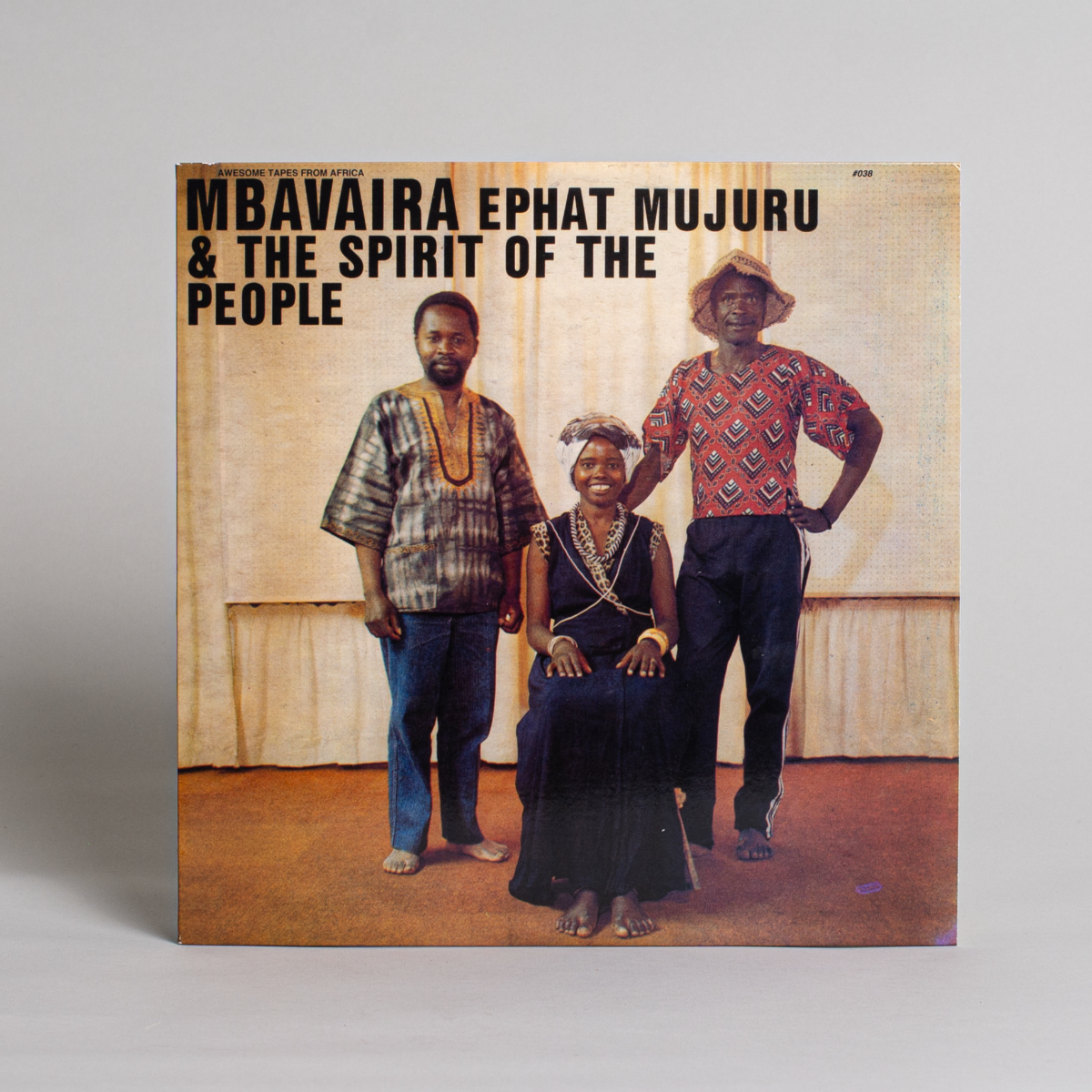Mbavaira by Ephat Mujuru & the Spirit of the People
27. August 2021
Ephat Mujuru & The Spirit of the People
Mbavaira
A luminous reissue of a 1983 mbira classic, Mbavaira captures Ephat Mujuru and his
ensemble at the height of Zimbabwe’s post-independence cultural renaissance. Rooted in
Shona spiritual tradition, the album’s four tracks weave interlocking mbira patterns,
hosho percussion, and call-and-response vocals into a hypnotic whole. The title, loosely
translated as “chaos,” belies the music’s unifying intent—bridging ancestral wisdom with
contemporary resilience. Mujuru’s uncle, Mude Hakurotwi, lends his distinctive voice to
the ensemble, enriching the album’s emotive depth. Originally released on Gramma Records,
this all-acoustic recording stands as a testament to the enduring power of traditional
Zimbabwean music.
***
Eine leuchtende Wiederveröffentlichung eines Mbira-Klassikers von 1983: Mbavaira zeigt Ephat
Mujuru und sein Ensemble auf dem Höhepunkt der kulturellen Renaissance Simbabwes nach der
Unabhängigkeit. Verwurzelt in der spirituellen Tradition der Shona, verweben die vier Stücke
des Albums ineinandergreifende Mbira-Muster, Hosho-Perkussion und Wechselgesänge zu einem
hypnotischen Ganzen. Der Titel, frei übersetzt als „Chaos“, täuscht über die einigende Absicht
der Musik hinweg – eine Brücke zwischen dem Wissen der Vorfahren und zeitgenössischer Resilienz.
Mujurus Onkel, Mude Hakurotwi, verleiht dem Ensemble mit seiner markanten Stimme zusätzliche
emotionale Tiefe. Ursprünglich auf Gramma Records veröffentlicht, ist diese rein akustische
Aufnahme ein Zeugnis der anhaltenden Kraft traditioneller simbabwischer Musik.
Tracklist:
Mbavaira
Kuenda Mbire
Mudande
Nyama Musango

Awesome Tapes from Africa
Awesome Tapes From Africa is a record label and web site operated by Brian Shimkovitz.
The site was founded in 2006 in Brooklyn, New York.
The site was created as a way for Shimkovitz to share music he had come across while on a scholarship in Ghana.
He was interested in the variety of genres and artists he found, distributed largely on cassette tapes at markets, but that he had not come across outside West Africa.
In 2011 he transitioned the site from just a blog with posted recordings of collected tapes posted without the artists' permission to a commercial record label.
The goal of the company is to seed and expand an audience for the artists presented as well as provide opportunities to sell albums and tour.
Artists are paid every six months and receive 50% of the profits from an album.
Tapes presented on Awesome Tapes come from a variety of sources: gathered in Ghanaian street markets, purchased in stores in the US, or sent by others over the internet.
In addition to the website, Shimkovitz DJ's concerts, clubs and at festivals as Awesome Tapes From Africa, as well as hosts a show on Dublab.
Most Awesome Tapes From Africa releases are official rereleases of out-of-print cassettes from African musicians and bands.
SK Kakraba's Songs of Paapieye is the first album to consist of a new release. Although music is distributed in Africa via MP3 on mobile phones, Shimkovitz says the widest variety of music in West Africa is still available on cassette tape.
In the journal Public Culture, Awesome Tapes From Africa, along with record labels Sublime Frequencies and Parallel World, is discussed as being emblematic of "World Music 2.0" for combining the "open source ethics of online networks with long-standing countercultural networks of circulation" within cassette culture and music distribution in developing nations.

